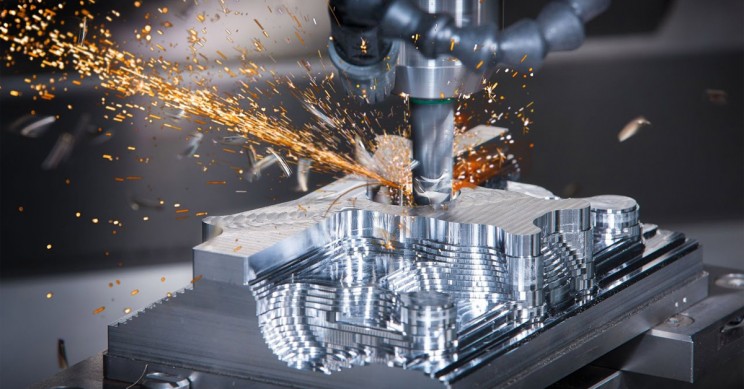
Machining is a fantastic field that defines what subtractive manufacturing entails. You get a chance to utilize some of the best machine tools in the industry. You can also become a machinist, establish your own business and start cutting materials into different shapes and sizes to produce exceptional products.
You can pursue different machining processes and establish yourself in the industry. Chemical milling is a unique process you will undoubtedly fall in love with in your pursuits. Also known as chemical machining, the process involves the removal of metal to the desired depth using strong chemical solutions.
You will be able to remove large amounts of metal from parts that cannot be machined using other tools in the industry. This will include tools used in traditional machining and have correctly engineered parts for different applications. Chemical machining is one of the distinctive techniques used for decorative etching.
Thanks to chemical machining, you will have parts that have deep miniaturized micro-components or internal cavities. The chemical milling process works in a simple manner, and it’s uncomplicated for newbies in the industry. It involves the following:
- Cleaning- You have to clean the oils and dirt from the metal you will mill. Apply a photoresist and bake it to ensure an even application. You will get the right adhesion of the masking material on the metal. Cleaning processes like alkaline etching and vapor degreasing will work miracles on the surfaces.
- Masking- Use maskants to ensure the parts you want machining comes into contact with a chemical.
- Scribing- Scribing helps remove the maskant from the chosen area of the material. This will allow the chemical reaction to take part in the workpiece.
- Etching- Etching is the most integral stage of the chemical milling process. This is where the workpiece is inserted in a container with the chemical of choice to undergo an extra reaction. The concentration of the chemical solution and the etchant used will determine the results. Use an ultrasonic thickness to assess the properties of the workpiece to get the recommended thickness.
- Demasking- Remove the masked from the area that is not milled and the oxide layer from the machined part.
- Washing- Wash the workpiece thoroughly using fresh water and remove the etchant from the desired surface. Now you can inspect the workpiece and package it for quality control.
Benefits of Chemical Machining or Milling
If you are into machining, don’t have any reservations about investing in chemical milling. The benefits of this exclusive process should influence your decisions. Have a look:
Wide Range of Applications
Chemical machining is an incredible process excellent for a wide range of applications. It’s easy to use the process on materials that are not compatible with traditional machining methods. The process is applicable in semiconductor fabrication, aerospace, and other industries.
High-quality Workpieces
When undertaking heating and cooling manufacturing, some materials are easily deformed. However, there is no residual or stress introduced to a workpiece with chemical machining. There is no thermal plastic deformation or thermal effects created.
Doesn’t Affect the Properties of the Material
The chemical machining process doesn’t affect the properties of the material used. The whole process will not change the hardness, adhesion, or thermal conductivity of the material used.
Ever-Growing Demand
Chemical machining is not a new concept in the subtractive manufacturing world. Its ever-surging demand keeps attracting more manufacturers. The process is also cost-effective and allows the milling of different materials.
Final Thoughts
The chemical machining or milling process is not that complicated. It involves exclusive steps that impact the quality of the finished workpiece. Milling experts need to choose suitable materials and develop sophisticated designs that influence exclusive final products.
Unlike other subtractive processes, chemical etching delivers stress-free parts that are not prone to distortion. If stuck, it is wise to look at the available chemical milling services in the market and learn more. There is a company eager to offer custom and standard chemical machining.
